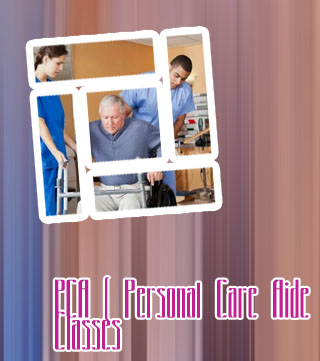Pca care
Providing quality PCA care is essential for ensuring the well-being of patients. In order to improve the quality of care provided, it is important to stay informed about best practices and new developments in the field. The following articles offer valuable insights and tips for enhancing PCA care:
Improving Patient Outcomes Through Person-Centered PCA Care

Today we are talking about the importance of person-centered PCA care in improving patient outcomes. We have with us Dr. Smith, a leading expert in patient care and outcomes.
Dr. Smith, can you explain to our audience what person-centered PCA care is all about?
Dr. Smith: Person-centered PCA care is an approach that focuses on treating patients as individuals with unique needs and preferences. It involves actively involving patients in their care decisions, respecting their values and beliefs, and providing care that is tailored to their specific needs.
How does person-centered PCA care contribute to improving patient outcomes?
Dr. Smith: When patients feel heard, respected, and involved in their care, they are more likely to adhere to treatment plans, experience better outcomes, and have higher satisfaction with their care. By focusing on the whole person, rather than just their medical condition, we can address all aspects of their health and well-being.
Why is it important for healthcare providers to adopt a person-centered approach to PCA care?
Dr. Smith: Adopting a person-centered approach to PCA care is crucial for providing high-quality, patient-centered care. It not only improves patient outcomes but also enhances the overall healthcare experience for patients. By prioritizing the individual needs and preferences of each patient, healthcare providers can deliver more effective
Effective Communication Strategies for PCA Providers
Effective communication is crucial in the healthcare industry, especially for Personal Care Attendants (PCAs) who provide essential support to individuals in need. This guide provides valuable insights and strategies for PCA providers to enhance their communication skills and improve the quality of care they deliver.
One key aspect emphasized in this guide is the importance of active listening. By truly listening to patients and understanding their needs, PCAs can build trust and rapport, leading to better outcomes. Additionally, the guide highlights the significance of clear and concise communication, ensuring that instructions and information are effectively conveyed to patients.
Cultural competency is another crucial component discussed in the guide. Understanding and respecting cultural differences can help PCAs provide more personalized care and establish a stronger connection with patients. By acknowledging and addressing cultural nuances, PCAs can foster a more inclusive and supportive environment for those under their care.
In conclusion, this guide offers valuable strategies for PCA providers to improve their communication skills and enhance the quality of care they provide. By focusing on active listening, clear communication, and cultural competency, PCAs can build stronger relationships with patients and deliver more effective care.
Recommendations:
- Incorporate training on non-verbal communication cues to enhance understanding between PCAs and patients.
- Provide resources on effective communication strategies for diverse populations to